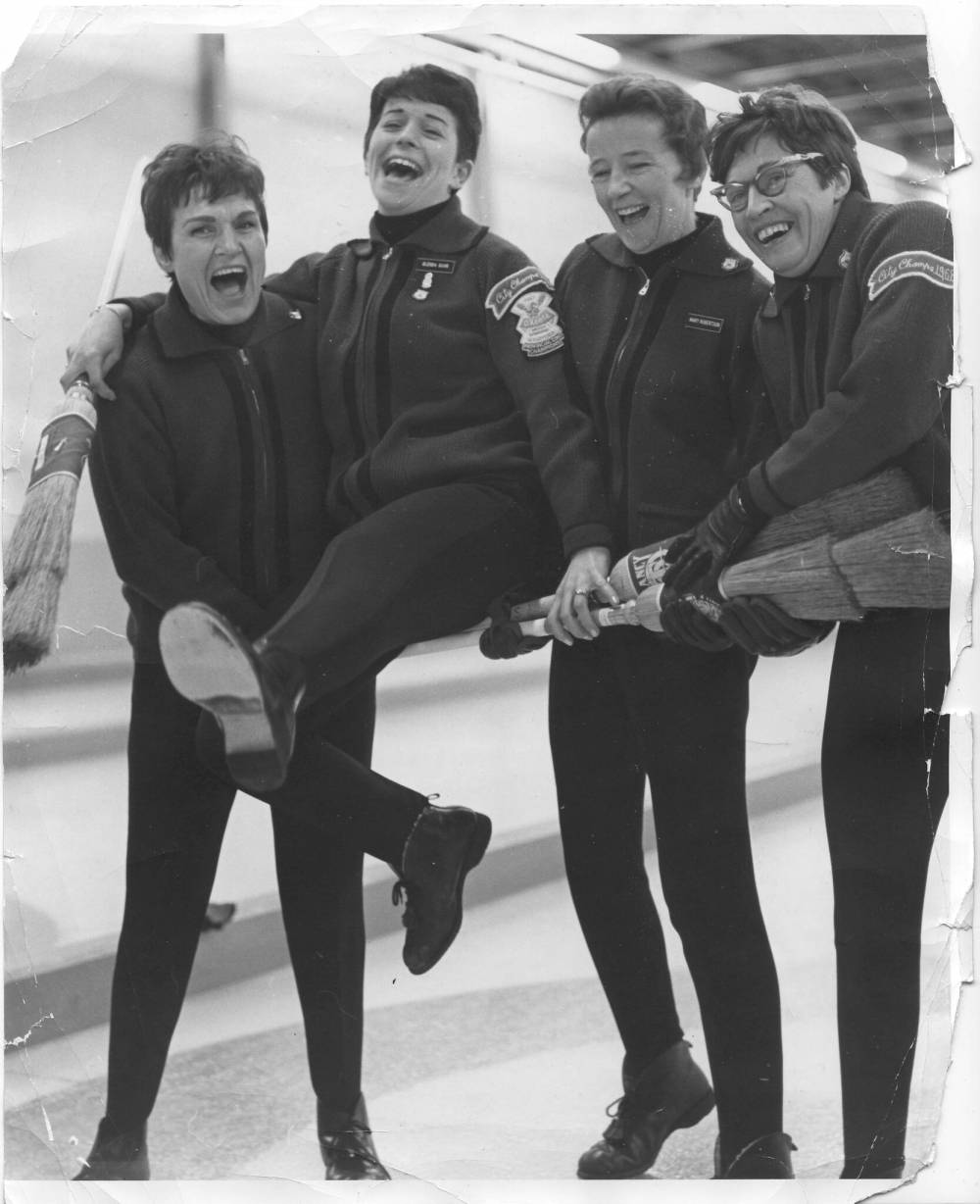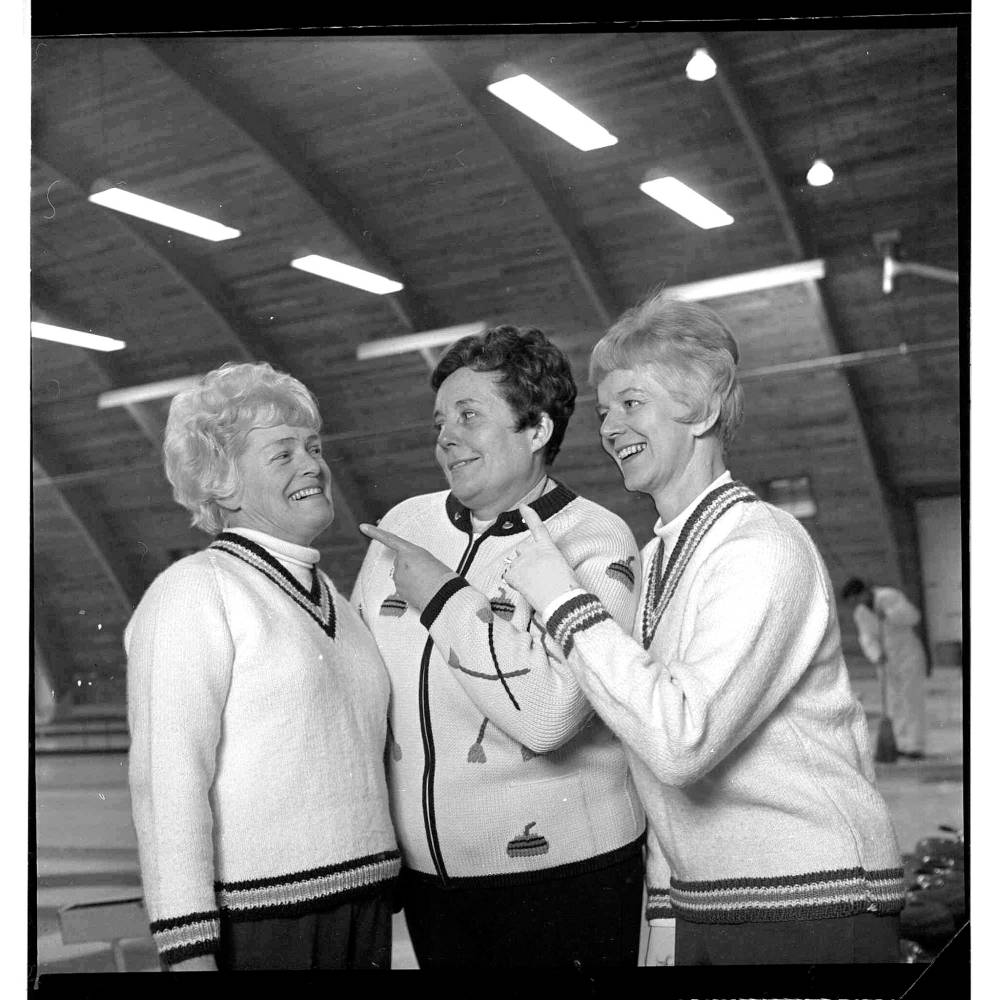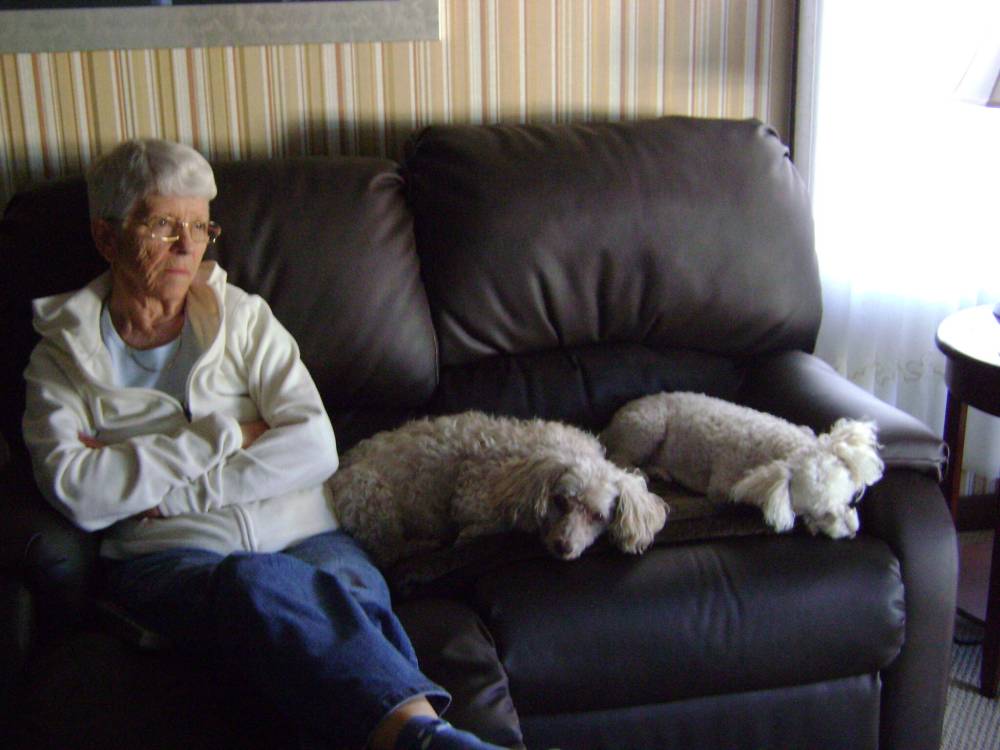On-ice skills put spotlight on natural leader
Glenda Buhr, 87, notched women’s, seniors provincial curling titles
Advertisement
Read this article for free:
or
Already have an account? Log in here »
To continue reading, please subscribe:
Monthly Digital Subscription
$0 for the first 4 weeks*
- Enjoy unlimited reading on winnipegfreepress.com
- Read the E-Edition, our digital replica newspaper
- Access News Break, our award-winning app
- Play interactive puzzles
*No charge for 4 weeks then price increases to the regular rate of $19.00 plus GST every four weeks. Offer available to new and qualified returning subscribers only. Cancel any time.
Monthly Digital Subscription
$4.75/week*
- Enjoy unlimited reading on winnipegfreepress.com
- Read the E-Edition, our digital replica newspaper
- Access News Break, our award-winning app
- Play interactive puzzles
*Billed as $19 plus GST every four weeks. Cancel any time.
To continue reading, please subscribe:
Add Free Press access to your Brandon Sun subscription for only an additional
$1 for the first 4 weeks*
*Your next subscription payment will increase by $1.00 and you will be charged $16.99 plus GST for four weeks. After four weeks, your payment will increase to $23.99 plus GST every four weeks.
Read unlimited articles for free today:
or
Already have an account? Log in here »
Hey there, time traveller!
This article was published 29/10/2022 (1134 days ago), so information in it may no longer be current.
Glenda Buhr was a go-getter.
She competed at the highest levels in two sports — curling and lawn bowling from the 1960s to the 1990s — but also took on the often thankless task of organizing golf leagues, curling bonspiels and even setting up golf games with a large group of friends while on vacation.
Buhr died April 19 at age 87, after living with dementia for a few years.

She had an outgoing personality that drew people to her and made her a natural with leading groups of people, says her husband, Glen Buhr.
“If you were in a room where she was, you could always find her by her laugh. She laughed a lot. She was generally a pretty happy person,” he says.
Curling was king during Winnipeg winters in the 1950s, and rinks across the city were jammed with folks playing in weeknight leagues and competing for city and provincial championships on weekends.
Glen taught Buhr to curl in the 1950s, and like many teachers, the student’s skills would surpass the mentor. “She was more athletic throughout her life than I was,” he says.
Canada’s top women curlers compete in the Scotties Tournament of Hearts and some gain a small amount of fame across the country, owing to the end-to-end television coverage of the annual competition. It’s become an Olympic sport, and Manitoba curlers have stood atop the podium.
This was before Buhr’s time though, and there were few, if any TV cameras focusing on the teams she curled with in the 1960s, ’70s and ’80s, even though she was part of Winnipeg rinks to beat in the pursuit of a provincial or national titles. Coverage would mostly be in the newspapers.
“She was interviewed and she was asked how old she was and she said 29, and she wasn’t,” Glen remembers with a laugh. “I think the article in the paper said, ‘This 29-year-old…’ She got a lot of kidding about that.”
Buhr’s name was in the headlines when the team she skipped with Rose Taylor, Mary Robertson and Miriam Cook won the Ladies City Championship in 1969, the provincial championship in 1970, and competed at the Canadian Ladies Curling Championship in Calgary.
“It came down to the last shot,” says Cook, 90, the last living member of the team and Buhr’s lifelong friend.
Photographers covering the tournament focused on Buhr for the shot — a takeout that had to stay in the rings — but her stone hit the opponent’s rock and rolled away, landing Buhr and company in a three-way playoff for the title, which Saskatchewan later won.
“We played well, but it was just one of those things,” Cook recalls.

Buhr returned to the national curling scene in 1986, playing third for Taylor, Helen Nelson and Shirley Beauchamp. They won the senior women’s provincial title that year, and finished with a 7-3 record at nationals in Portage la Prairie.
Buhr contributed to curling in other ways, too. She helped bring the Curl Canada program to Manitoba, and held many clinics to introduce youth to the sport. She was an official at Canadian championships and headed the Manitoba Ladies Curling Association bonspiel, encouraging teams to join her in the recreational events after her competitive career came to an end.
The Buhrs took up lawn bowling in their 60s, and the on-ice skills transferred.
“In those days… we were among the younger people, maybe a little sprier than most,” Glen says.
The Buhrs both represented Manitoba at lawn bowling national championships, with Buhr winning a national title in 1996 in women’s fours with Marlene Cleutinx, Myrna Oliver and Audrey Schmidt.
Buhr’s organizational skills would come in handy in the summers, too, as she set up women’s golf leagues at Kildonan and Shooters golf courses.
Many of her golfing pals in the city would continue their friendship, and golfing, in the winter as snowbirds. The Buhrs purchased a mobile home in Harlingen, Tex., near the Mexico border and only a few miles from the Gulf of Mexico.
Once again, it was Buhr who set up groups that helped build a home away from home for wintering Winnipeggers in the Lone Star State.
“I helped her for one month (organizing golf outings), and basically she did most of it, she was always on the go,” says Marilyn Hermiston, one of many Winnipeggers who golfed with the Buhrs in Texas.
The Buhrs spent almost all of their lives together. They grew up just a few houses from each other, on Belvedere Street in St. James. Glen cared for his wife at their home that was built in 1958 — at the time on the outskirts of Transcona but is now in the middle of the Winnipeg suburb.

“She was very young and so was I when we were married. We sort of dated for a year or so. It was 1952, and she was 17 and I was 18,” Glen says. “If she’d made it to July, we would have had our 70th wedding anniversary.”
While they were opposites that did attract — she was outgoing and he’s more reserved — they both ended up working for pension funds, with Buhr at the Civil Service Pension Fund, after their children — Pam and Glenn — grew up. Glen worked for a pension fund for Manitoba teachers.
“She started off answering the phones at the front and ended up being a peer retirement counsellor, travelling around Manitoba,” he says.
Buhr loved animals, and it was a rare time when there wasn’t a couple of dogs and a couple of cats at their house. The couple’s last dog, Maggie, was a stray that wandered to their home in Texas.
They later found out Maggie was a neighbour’s dog, and they let the Buhrs keep her. “It ended up being a bit of a dog-napping,” Glen says.
Alan.Small@freepress.mb.ca
Twitter: @AlanDSmall

Alan Small has been a journalist at the Free Press for more than 22 years in a variety of roles, the latest being a reporter in the Arts and Life section.
Our newsroom depends on a growing audience of readers to power our journalism. If you are not a paid reader, please consider becoming a subscriber.
Our newsroom depends on its audience of readers to power our journalism. Thank you for your support.

